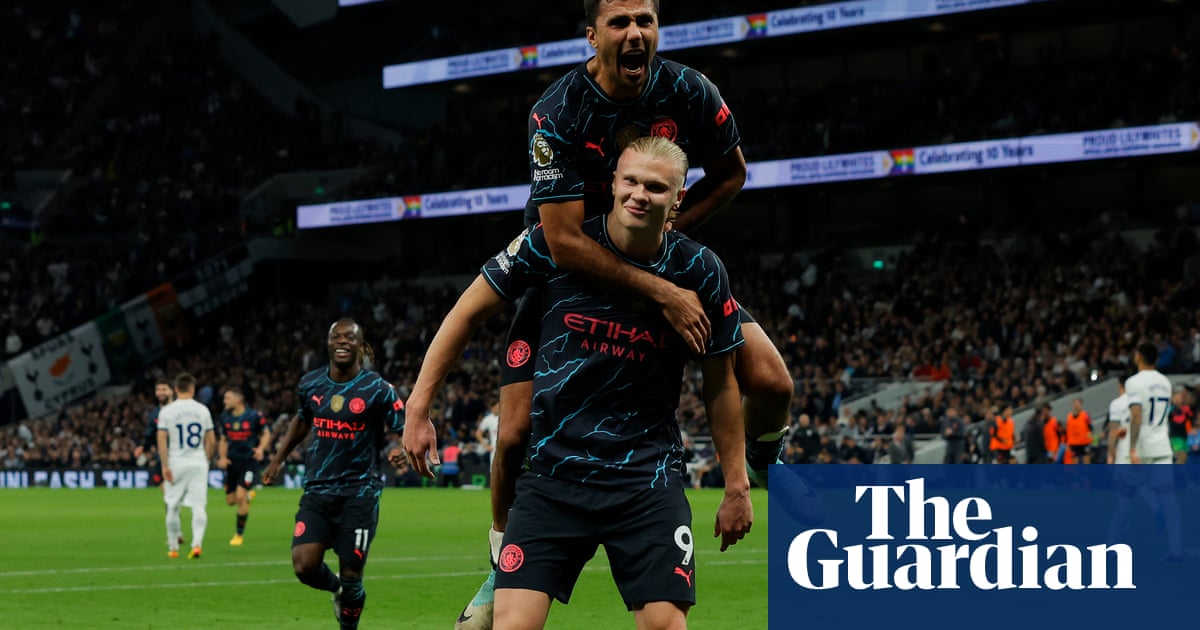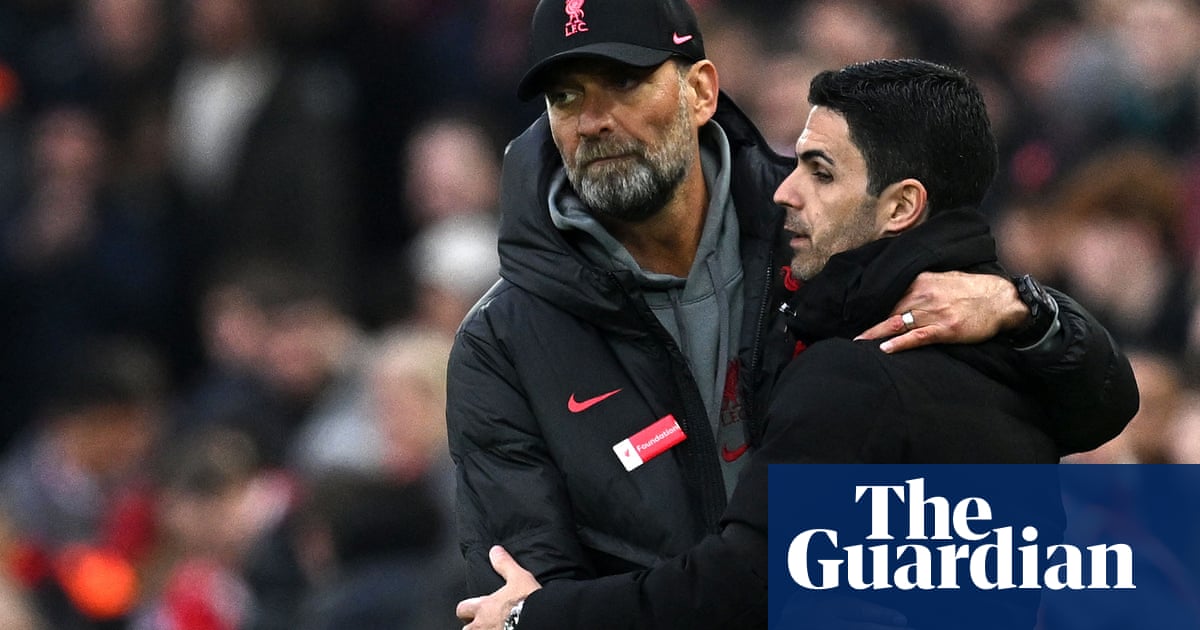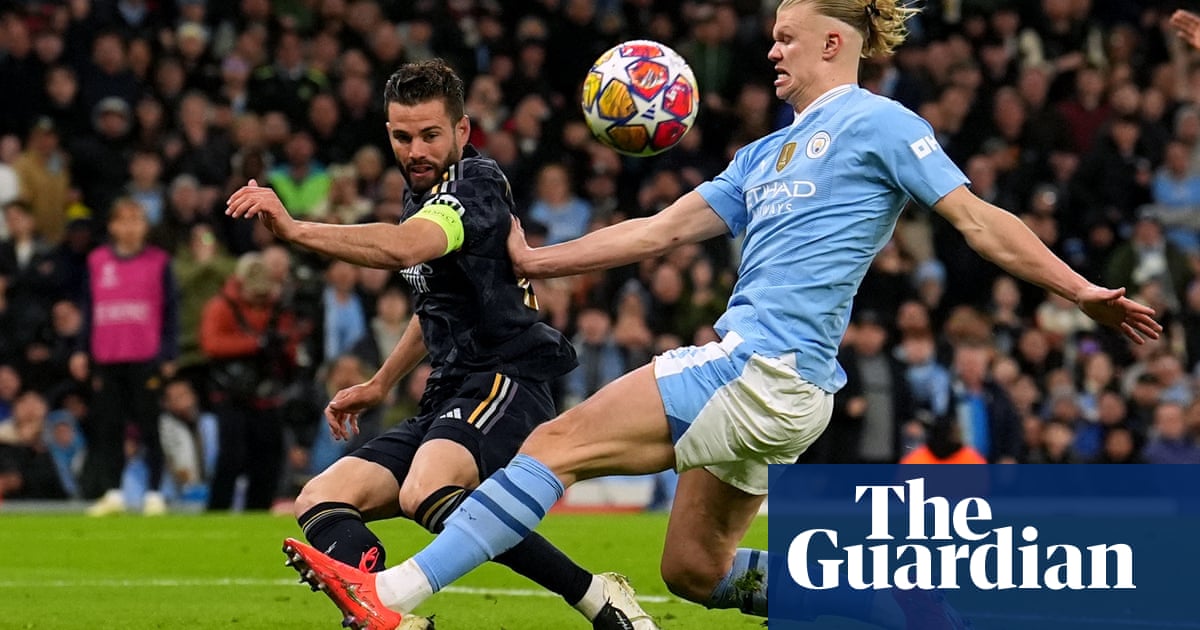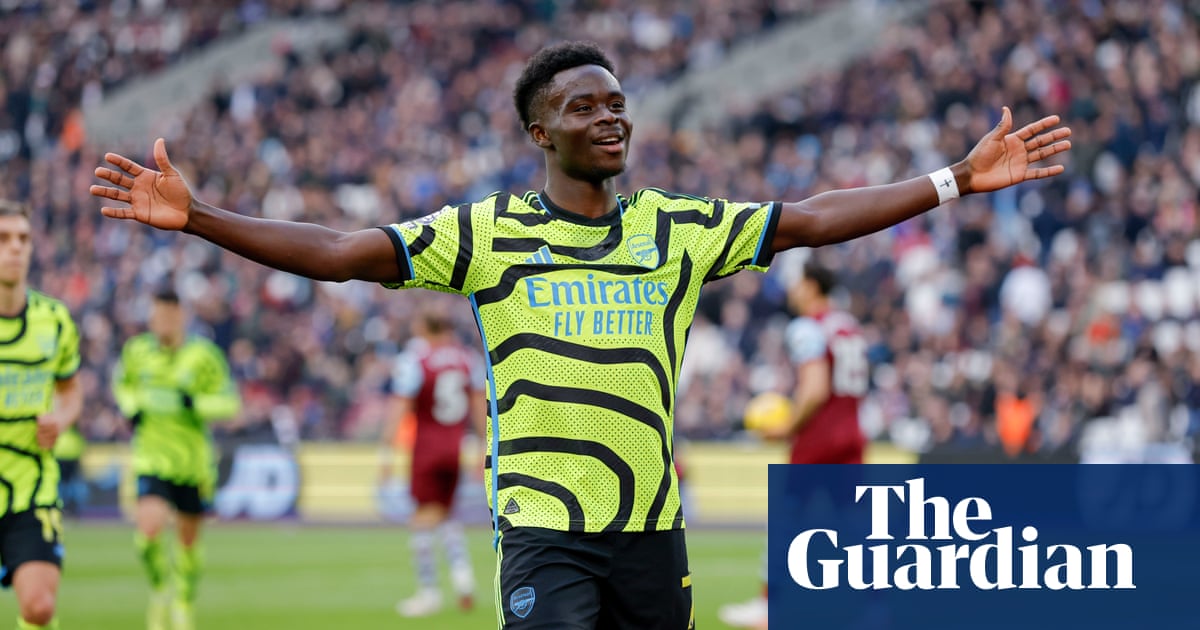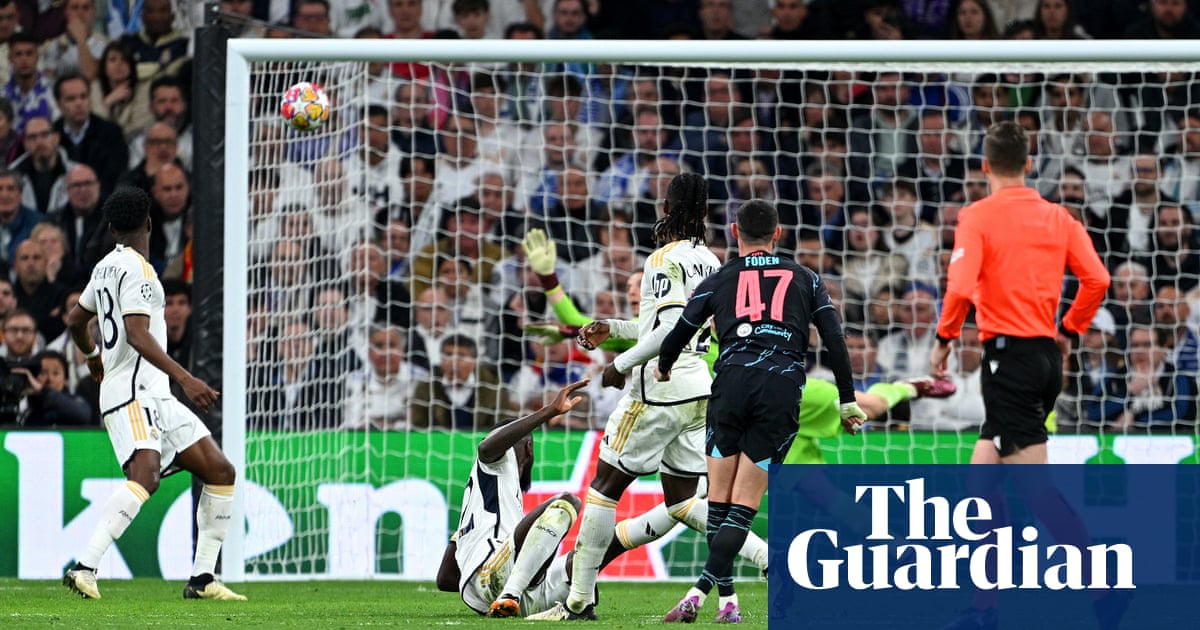
“They look like a PlayStation team.” It felt significant that Giorgio Chiellini’s assessment of the current Paris Saint-Germain squad, offered in an interview with L’Equipe this week, was intended as a compliment or at least something close to one.
As Manchester City travel to Paris for what is, on paper, their toughest Champions League group fixture, it would be easy to feel a little underwhelmed by opponents who are still struggling to adjust to the presence of their new No 30 shirt, also known as the greatest club footballer of all time.
Six weeks and two starts into his new club career Lionel Messi has had very little tangible effect on the field of play. The inaugural outing of the glitziest front three in football history ended two weeks back with Neymar-Messi-Mbappé mustering fewer shots on target between them than Club Brugge’s second striker.
Messi has been struggling with an injury to his left knee, which caused him to miss the win against Montpellier at the weekend. He trained on Sunday. In the these circumstances a normal, everyday superstar would be described as “likely to be on the bench”. Messi is 100% certain to be there, if only for the eyeballs, the likes, the closeups, and the first global opportunity to embed that iconography within the PSG brand.
This has been the story so far in the absence of any meaningful action. Shortly after Messi’s first unveiling Nasser Al-Khelaifi, PSG’s president, was already talking about the “unbelievable numbers” the club expect to generate. To date the most gripping commentary on his summer move has been a blizzard of economic data, with much drilling-down into the old chestnut that players like Messi “pay for themselves”, that his commercial revenue is of such a scale it can offset his cost (€50m this year, €25m annually after that).
The six-time Ballon d’Or winner may have failed to score a goal, or offer any kind of fluency as yet, but hey, in the last few weeks the club has announced a new crypto partner, a social media partner, an official vape partner, a wellness drinks partner, an official “multi-asset broker” (no, me neither) partner and a fashion deal with Christian Dior. Plus, of course, an official PSG used-car sales partner, who is already promising to use the players in its adverts, though this could lead to a few issues of dramatic credibility as Neymar, Mbappé and Messi compare their experiences of the no-haggle guarantee for bumper scratches on a 17-plate Ford Focus.
And now, finally, we have this: some football with a hard edge. It is a fixture PSG will contemplate with a little anxiety. Mauricio Pochettino’s squad is surely too richly loaded with talent to have any real problems escaping from Group A. But there is still room for a quickening of the pulse. Lose tonight and PSG will be in third spot and at least two points back should the other group game produce a positive result.
The club’s Qatari ownership rejected the idea of a European Super League due to (it says here) their enduring belief in the glorious uncertainty of sport. In an obliging twist the team has an opportunity in the next few weeks to explore exactly this principle, slugging it out with RB Leipzig and Brugge while fielding half a billion dollars worth of attackers.
This is, of course, a distant prospect. PSG have tended to save their moments of vertigo for the knockout stages. Still, though, this Messi-era iteration remains an unsolved puzzle. To date PSG have scored twice across a combined 190 minutes with Messi on the pitch and just once from open play. Without Messi this season they average a goal every half an hour.
Every new player takes time to settle. Messi is 34, 17 years into his elite career, tactically sui generis, and adapting to a very physical, hard-running league. He has looked pensive and a little slow on the draw but there will be no real concerns at this point. This is a signing based on the idea genius conquers all, that normal rules will not apply and that Messi is so good that any problems arising will simply melt away.
For now the tactical concerns remain. The PSG version of Neymar already occupies the same space Messi fills naturally. Neymar’s vice is to slow the game. Messi still acts as an accelerator. He is clever enough to find a way to make this work. The real issue against a team of City’s quality will come from the fact all three of PSG’s star attackers really play only going forward.
Who, exactly, is going to be tracking back here, smothering the counter, evening out the overloads on the flanks? City picked PSG apart over two legs in last season’s semi-final, riding out a period of pressure in the first leg to expose, mercilessly, the weak stitching behind. By the end of the second game the PSG midfield was playing through a red mist, fazed by its unaccustomed failure to control the play. How, exactly, is the emergence of another possession-reliant attacker going to change this?
The answer is simple enough: genius, old boy. Magic on the ball, and a goal a game near enough. These things tend to cover a few cracks. Plus, of course, Pochettino has now had time to work on his team and has a more powerful central midfield with Idrissa Gueye and Georginio Wijnaldum available.
For now the other half of Chiellini’s quote seems just as significant: “If they can put the interests of the team ahead of the individual interests, they will be unbeatable.” It remains a key “if”. There has already been one moment of big ego snark this week. As Mbappé left the pitch against Montpellier he was lip-read saying “This tramp, he does not give me the pass.” The tramp in question being Neymar.
City will hope to add a little fuel to that state of uncertainty. Their manager will know better than anyone else in football that PSG have the capacity, even from the bench, to change that narrative in an instant.




